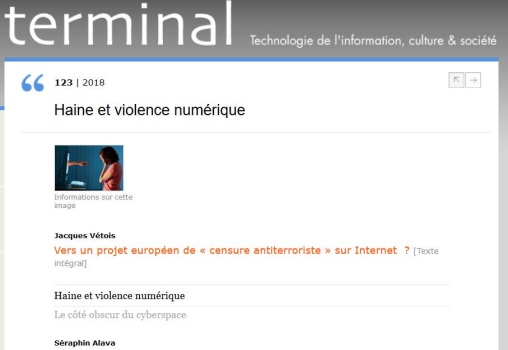Internet est-il un espace de radicalisation ?
Revue Terminal [Online], No. 123, published online on 31 December 2018
By Seraphin Alava

Today, when we ask ourselves to begin to understand the Internet and its place in our material universe and our way of life, the twenty-first century forces us to realize that we are currently facing a “new world” that possesses extraordinary riches, but also conceals even greater dangers. As was the case with sixteenth century explorers, we know that this 7th continent exists yet we know very little about it and have difficulty mapping it. Despite the many studies conducted to try to understand rituals and spaces, we are still waiting for Jacques Cartier of the 21st century to sketch the new and changing forms of this cyberworld. The descriptive, dynamic and comprehensive cartography of this new world is all the more difficult to produce as this world has three specificities that force us to rethink our cognitive modalities and question our intelligibility. Indeed, the Internet (if this word can still retain meaning as a sociological unit) is virtual, in other words, it is non-material and its dynamics mutate with each major technological revolution. Thus, there are four socio-technical eras that propose, impose or make new forms of digital life possible.
